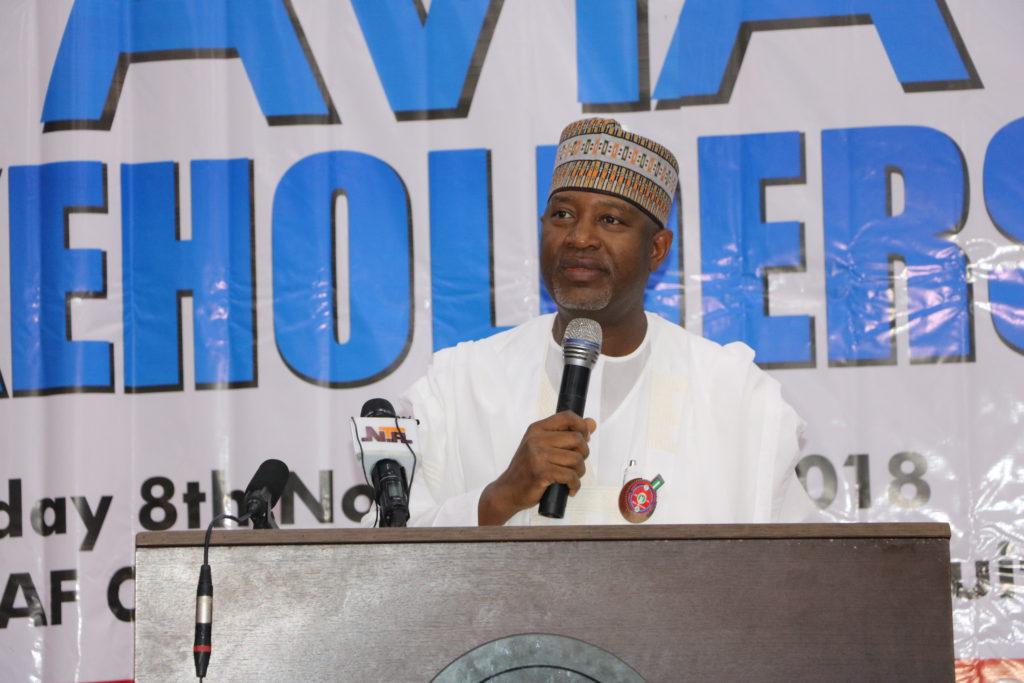
In early February inclement weather occasioned by the harmattan haze exposed the poor navigational infrastructure at the nation’s busiest airport in Lagos and made Nigeria a laughing stock in the aviation world.
Domestic airlines operators, aviation agency officials and others heaved a sigh of relief after mid-January, when the ferocity of the harmattan haze ebbed. It meant that there would not be flight disruptions any more by inclement weather. Many believed that the worst was over for this part of the year.
But by February 9, 2020 reports began to filter in that mega carriers like British Airways, Emirates, Air France and others destined to the Murtala Muhammed International Airport (MMIA), Lagos diverted flights to Accra, Ghana, Dakar in Senegal and US carrier, Delta Air Lines even took its passengers in one of its flights back to the airport of departure.
Lagos is one of the busiest airports in Africa. In 2019 rating it was the 11th busiest airport in the continent and also in 2019 it recorded over 7 million passenger movement. So that such international carriers could not land in Lagos was a huge damage to the image of Nigeria.
What Happened
THISDAY investigations revealed that when the weather suddenly changed, it reduced visibility to below the standard 800 meters minima to about 600 or less. In this case, airlines needed Instrument Landing System (ILS) to land at such low visibility. But the ILS was not functional. The Nigerian Airspace Management Agency (NAMA) in November 2019 removed the existing Category 2 ILS and replaced it with Category 3, which is advancement on Cat 2. While Cat 2 can take the pilot to 400 meters to the runway, Cat 3 can take the pilot to the runway at zero visibility.
But the problem was that for the cat 3 ILS to work it has to be calibrated and certified. As at the time these incidents of flight diversion happened, NAMA had not finished the calibration and certification of the navigational instruments. In fact, it could be recalled that in mid-January, foreign airlines diverted flights to Accra and Togo due to the same poor weather condition. It was that January diversion that literally woke NAMA from its reverie and it made frantic effort to calibrate the landing aids. But the work was not completed before the harmattan haze suddenly appeared again.
Calibrating with the airplane acquired by the federal government for that purpose, the expatriate members of the flight crew had to return to their country and it was while the calibration exercise was being delayed that the angry harmattan haze appeared again. But by February 16, the weather began to improve and by the next two days normalcy returned and flight operation started again at the Lagos airport, which before then became stripped of its crowded passengers, especially in the evenings.
The crew returned and resumed work on February 18 and by February 20, there were indications that both the runways 18L, known as the domestic runway and 18R, known as the international runway had been calibrated. NAMA issued NOTAM (Notice to Air Men) to that effect. NOTAM was an indication to the aviation world that the Lagos airport has its ILS certified; therefore, flights can land, even at very low visibility.
Industry observers have excoriated NAMA for removing the Category 2 ILS when it was not ready with Cat 3 and described such action as lackadaisical and inefficient.
Losses
It has been estimated that airlines lost about N5 billion to the bad weather that lasted for about six days. The aviation agencies like the Federal Airports Authority of Nigeria (FAAN), which charges about $50 per passenger on international flight and also charges for landing and parking lost huge revenue. NAMA lost en-route charges paid by both local and international carriers.
Domestic airlines were not spared of the losses. THISDAY learnt that domestic airlines cancelled many flights. Dana Air, Arik Air, Azman Air and others issued statements, urging their passengers to understand that they could not be airlifted or the flights were to be delayed due to disruptions occasioned by the weather.
Part of Arik Air notice explained, “This is to inform all our esteemed customers who have had the difficulty in reaching their various destinations through our flights that the current challenge is due to inclement weather.
“This poor and persistent weather condition has mostly affected our Port Harcourt, Kaduna, Warri, Asaba, Yola and Sokoto routes.”
It has to be noted also that while the inclement weather affected all parts of the country, Lagos international runway was adversely affected because it did not have ILS. But flights to other airports were equally disrupted.
General Manager in charge of research and technical assistance to the Director General, NIMET, Dr. Mansur Bako-Matazu, explained to THISDAY that why the harmattan haze seemed severe in lowering visibility in Lagos was because the dry dust coming from the north mixes with humidity and moisture and then spreading thick, brownish dust on the atmosphere, thus inhibiting visibility for a long distance. He noted that airlines shouldn’t have diverted flights outside the country, but should have flown their passengers to Abuja, which would have made it easier for the passengers to reach their final destinations without stress.
Passengers’ Experience
The flight disruptions, cancellations and diversions left many of the passengers frustrated and disorganized. Many of them billed to travel out of the country had to stay back for days, while those whose flights were diverted to Accra had to spend some days there before making their way back to Nigeria.
There were reports that British Airways abandoned some of its passengers in Accra, as testified by some passengers who claimed that the airline asked them to fend for themselves and send their expenses bills to the airline, but in the apology to the passengers, signed by its General Manager, West Africa, Mr. Kola Olayinka, the UK mega carrier said, “We would like to use this opportunity to tender an unreserved apology to our esteemed customers for the inconveniences of varying degrees, experienced these past few days.
The situation has been a result of recent delays and diversions of flights occasioned by the inclement weather causing very poor visibility at the Lagos Airport, coupled with a number of factors outside of our immediate control.
“In these unique cases, the decision to delay or divert flights were made carefully by our pilots who are well trained to handle situations like this, especially in consideration of the safety and security of our passengers and crew.”
BA said as a people-first airline, “we ensured that our customers were properly accommodated in hotels where adequate rooms were available, meals, refreshments, and transport to and from the airports were provided for their movement at the different airports in Accra, Abuja, and Lagos.”
“Regrettably, in this unique case, most hotels were taken up by passengers of airlines that were earlier diverted to Abuja. The direct result was the inadequacy of accommodation. To resolve this, we booked all 157 available rooms and accommodated 157 Passengers; we also ensured the safety of the remaining passengers by accommodating them in a dedicated area provided by Sheraton where we provided meals and drinks.
“The Accra incident was markedly unpredictable as the delay lingered for two days due to the persisting weather condition. We chartered a Boeing 767 from Euro Atlantic to convey passengers from Accra to Lagos however a number of passengers had opted to make personal arrangements for their return,” the airline said.
BA said it regretted that the frustrations experienced and the disruptions it would have had on earlier-planned engagements of our esteemed customers.
“We would also like to use this opportunity to encourage passengers to send receipts of expenses incurred during this period to our customer relations team on standby to process the reimbursements and also attend to queries. We remain unwaveringly committed to the safety and comfort of every passenger and crewmember. That is, and will always be the priority for everyone at British Airways,” the airline added.
In making their own personal arrangement, THISDAY learnt that some of the passengers came back to Lagos from Accra by road because they could not stand the chaos and uncertainty that characterised the sudden upsurge of passengers at the Kotoka International Airport, Accra, which never envisaged that it would process that number of passengers.
International Implication
The Minister of Aviation, Senator Hadi Sirika, who had earlier apologised to the airlines and travellers, was miffed by the decision of the international airlines to divert their flights to Accra instead of Abuja. But the airlines had reacted and said that what was most important for the airlines was the safety of their passengers; and as noted by BA’s apology, the flight billed for Abuja in one of the days, made a detour to Accra and its passengers and others chocked the hotels in the Ghanaian capital city.
By not providing the needed airport infrastructure, Nigeria has unwittingly made Accra the airport of choice in the West Africa sub-region and therefore has helped the airport authority to actualise its ambition of being the operational hub in the West Coast.
Industry pundits have noted that it is this kind of hiccups that has kept Nigeria backwards from having one of its airports become the busiest airport in Africa.






